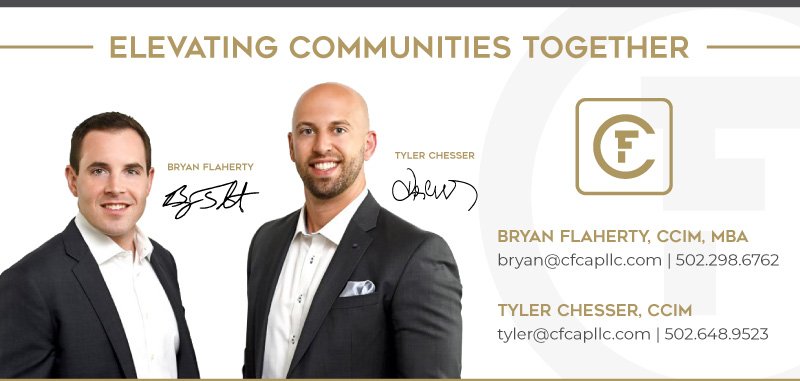Cap Rates and Interest Rates in Commercial Real Estate
Investing in commercial real estate requires forecasting current and future performance. This involves many variables, but for today’s discussion, we want to focus on two important metrics: cap rates and interest rates. As an investor, it’s imperative to pay close attention to the movements in these two metrics since they impact commercial real estate investment performance.
What is the Cap Rate?
Cap rate, also known as capitalization rate, is used in commercial real estate to determine the rate of return that is expected to be generated on an investment property, if purchased without leverage. It describes the relationship between a property’s Net Operating Income (NOI) and its market value. The formula used to calculate the cap rate is:
Net Operating Income = Total Income – Operating Expenses
Capitalization Rate = Net Operating Income / Purchase Price
Cap rate is a basic calculation for how real estate investments are valued in the marketplace. If there are lower cap rates, it generally means that the property is less risky, and the asset price is high. Conversely, the higher the cap rate, generally the greater the risk and potential return. Lower value cap rates typically indicate the property is steady and has reliable growth, a characteristic commonly seen in multifamily properties. Higher cap rates imply relatively lower prospects of return on property investment and are therefore considered riskier investments.
What are Interest Rates?
Interest rates are the amount charged by a lender to a borrower and can have a profound effect on the value of income from real estate investments. If interest rates are low, the bank will earn less on the loan issued and a borrower will pay less to obtain the loan. When rates are high, a bank earns more, and a borrower pays more. Higher interest payments reduce your net cash flow and investment returns, which is called the cost of financing.
When it comes to investing in commercial real estate, there is one type of interest rate benchmark that is important to track, risk-free rate. That is the rate paid on a bond issued by the U.S. Department of Treasury with a 10-year maturity. It is called the risk-free rate because it is considered the safest place to put money and investors can be confident that they will be repaid, with interest, on time. However, in comparison to investment returns on commercial real estate, the return on investment is low.
As an investor, how much more risk are you willing to take in order to capture higher returns? This is where the relationship between cap rates and interest rates comes into play.
The Relationship Between Cap Rates and Interest Rates
Commercial real estate cap rates and interest rates are historically highly correlated and understanding the relationship between the two can give you insights into the market. As interest rates go up and down, cap rates also go up and down. Both are not static, which means both are constantly changing, impacting real estate valuations. Economic conditions and investors' demand are factors that drive changes in the 10-Year Treasury rate. During economic setbacks, investors tend to lean toward the safe side and use Treasuries, which drives prices higher and rates lower.
Cap rate changes are driven by numerous factors, but the most prominent are supply and demand expectations. When there is a low supply and high demand, investors will accept a lower return because there is a lower risk. Cap rates fall and prices rise, meaning investors are willing to pay more for potential growth. So, depending on the economy, the spread between treasury rates and cap rates expands and contracts. When the spread is at a high, it means the potential return may be higher, but if it is a lower spread then it is a lower return.
Invest with CF Capital Today
The relationship between interest rates and commercial real estate can significantly impact property values. That’s why it’s important to strategically monitor changes in interest rates and how it might impact the market. At CF Capital we carefully research and due diligence, to find investment opportunities that offer the potential for high returns even in today’s current market. When you passively invest alongside our team, you can have confidence we are closely monitoring and optimizing these factors for your real estate investment success.





